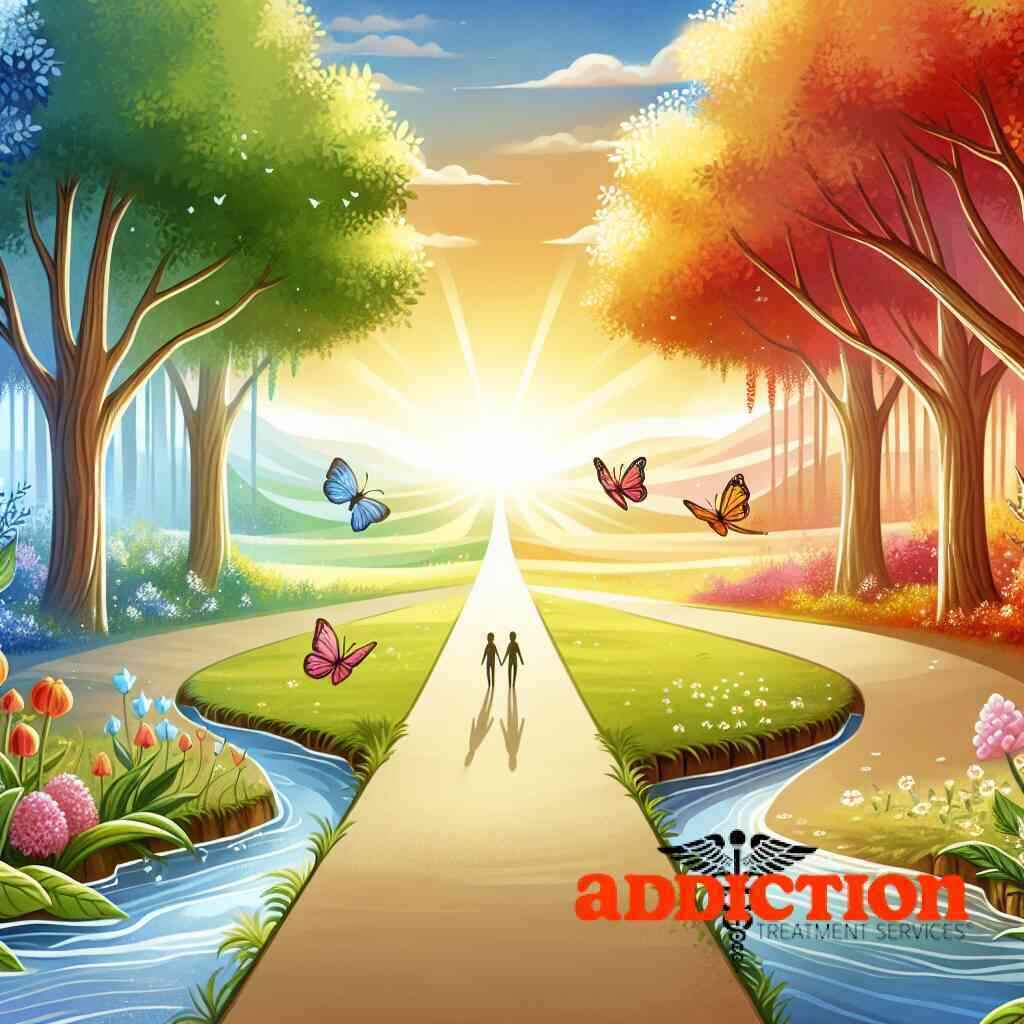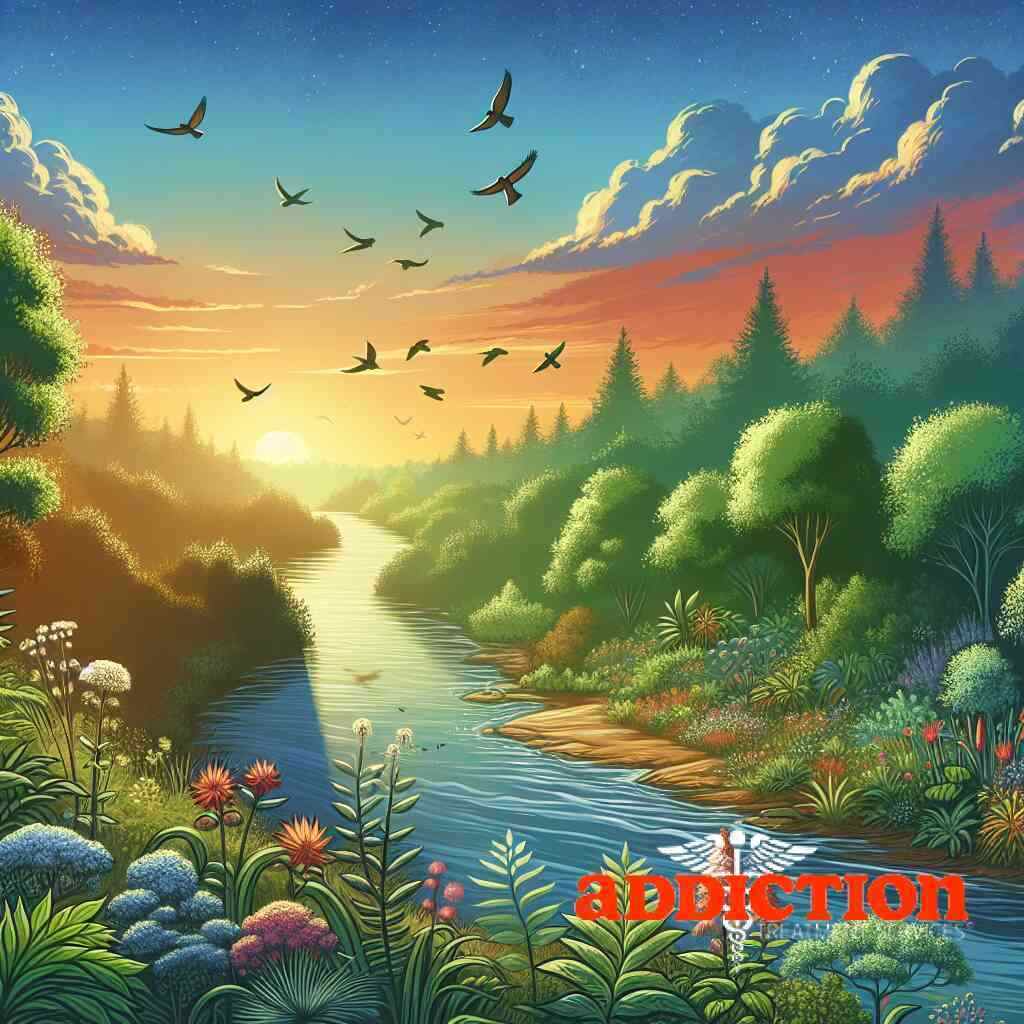 Posted On: 08/01/2024
Posted On: 08/01/2024Understanding Person Addiction
Defining Emotional Dependency
Emotional dependency refers to a situation where one’s feelings of self-worth, happiness, and emotional stability are heavily reliant on the presence, attention, or approval of another person. This dynamic can create a strong emotional bond that mimics the intensity of substance addiction. Emotional dependency often manifests through constant anxiety about the relationship, fear of abandonment, and an inability to feel fulfilled or happy without the other person’s involvement. This psychological state can lead to an unhealthy form of attachment, where the emotional needs of an individual overshadow personal growth, autonomy, and, often, the quality of the relationship itself.
Exploring Relationship Addiction and Codependency
Relationship addiction and codependency represent deeper layers of emotional dependency, where the addicted individual may experience severe withdrawal symptoms in the absence of their partner, much like someone might suffer from abstaining from a substance. In these dynamics, the person addicted might go to great lengths to maintain the relationship, regardless of its negative impact on their well-being or the well-being of their partner. Codependency, a term often intertwined with relationship addiction, signifies a pattern of behavior where one partner enables another’s addiction, poor mental health, irresponsibility, or underachievement, further entangling the unhealthy dependency between them.
Addiction to individual treatment services plays a crucial role in addressing these harmful patterns by offering specialized programs that focus on developing healthier interpersonal skills, fostering emotional independence, and overcoming the underlying issues that contribute to the addiction.
Psychological Attachment vs. Healthy Relationships
Understanding the line between psychological attachment and healthy relationships is fundamental to recognizing when affection and care turn into addictive behavior. While healthy relationships are based on mutual respect, independence, and growth, addictive relationships are marked by a lack of boundaries, fear of separation, and an overwhelming need for reassurance and validation from the other person. Psychological attachment in this context refers to an intense emotional connection that leads to neglecting one’s needs, desires, and even personal values to keep the relationship intact. Identifying these patterns is the first step toward recovery, where therapeutic interventions can guide individuals toward establishing more balanced, respectful, and fulfilling relationships.
The Risks of Addictive Relationships
Emotional Abuse and Its Impact
Emotional abuse often shadows addictive relationships, marking a significant risk for individuals trapped in them. It manifests through controlling behaviors, manipulation, constant criticism, or verbal assaults, profoundly affecting the victim’s self-esteem and psychological well-being. The abuser, playing on the emotional dependency of the victim, creates a cycle of addiction where the latter finds it challenging to leave due to fear, love, or the hope for change. This toxic dynamic not only perpetuates the addiction to the person but also paves the way for long-term psychological trauma. Addressing this issue, addiction treatment services offer specialized programs focusing on the intertwined nature of emotional abuse and personal addiction, guiding individuals toward recovery and healthier relational dynamics.
How Unhealthy Attachments Can Hinder Personal Growth
Unhealthy attachments, a hallmark of addictive relationships, significantly impede personal growth and self-discovery. These relationships often prioritize the needs and desires of one person at the expense of the other’s development and well-being. This imbalance leads to the neglected partner losing sight of their aspirations, hobbies, friendships, and sense of identity outside the relationship. The fear of losing the ties keeps individuals from pursuing opportunities that would foster their growth, resulting in a life that feels unfulfilled and stagnant. Engaging in therapy for emotional and relational addiction can be a pivotal step in breaking free from these patterns, encouraging individuals to rebuild their self-confidence and autonomy.
Recognizing Signs of Withdrawal From Relationship
Just as with substance abuse, withdrawing from a relationship can trigger a range of emotional and physical symptoms indicative of addiction. These may include intense feelings of sadness, anxiety, loneliness, and even physical symptoms such as insomnia or changes in appetite. Individuals might also experience intense cravings to reconnect with their partner despite rational understanding of the relationship’s toxicity. Recognizing these signs is critical to acknowledging the severity of the addiction and the need for professional help. Resources like the Addiction recovery services contact info provide immediate access to support, guiding individuals through the initial stages of withdrawal and setting the foundation for healing from person addiction.
The Road to Recovery
Detoxification From Emotional Attachment
Detoxification from emotional attachment involves a conscious and deliberate process of withdrawal from harmful relationship patterns, akin to detoxification from substances. This phase is about breaking free from emotional dependencies that bind an individual to another person in a manner that’s detrimental to one’s mental, emotional, and sometimes even physical well-being. Just as the body must cleanse itself of toxins during substance detox, the mind must also learn to purge unhealthy emotional habits. This often requires embracing solitude, reflecting on personal needs and boundaries, and nurturing self-love and self-respect. It can be a challenging journey, marked by moments of loneliness and temptation to return to familiar patterns. However, with the proper support and commitment to self-growth, detoxification from emotional attachments paves the way to healthier relationships and a more stable sense of self.
Therapy for Addiction: Individual and Couples Counseling
Individual and couples counseling plays a pivotal role in recovering from person addiction, offering a supportive environment to explore the roots of emotional dependency and address underlying issues. Therapy sessions are designed to foster introspection and self-awareness, equipping individuals with coping mechanisms for overcoming emotional dependency through treatment programs. For couples mired in addictive relationships, counseling can help redefine boundaries, improve communication, and re-establish a healthy dynamic. Whether through cognitive-behavioral therapy, psychoanalysis, or other therapeutic models, professional guidance assists in unraveling complex emotions and behaviors, facilitating a journey toward healing and autonomy. Individuals need to recognize that recovery from interpersonal addiction takes time, patience, and, often, the willingness to transform deeply held beliefs about love and attachment.
Codependency Treatment Programs
Codependency treatment programs are specialized interventions designed to help individuals break the cycle of dependency that often characterizes their relationships. These programs combine education, behavioral therapy, and support groups to address the multifaceted nature of codependency. Participants learn about the patterns and characteristics of codependent relationships, gain insights into their behavioral tendencies, and develop strategies for building healthier relationships. Through intensive outpatient programs for love addiction and other tailored approaches, individuals are guided toward establishing autonomy, enhancing self-esteem, and fostering connections that are reciprocal and balanced rather than controlled by neediness and fear of abandonment. By focusing on personal growth and emotional resilience, codependency treatment programs offer a pathway to liberation from the constraints of addictive love, opening the door to a life of fulfilled independence and healthier interpersonal dynamics.
Support Services for Overcoming Love Addiction

Addiction Treatment Centers and Their Role
Addiction Treatment Centers play a pivotal role in addressing the complex nature of person addiction, functioning as safe havens where individuals can embark on the journey toward healing and recovery. These centers provide a structured environment where individuals grappling with emotional dependency or relationship addiction can find comprehensive support tailored to their needs. Through a blend of addiction treatment services near you, centers offer a multifaceted approach to recovery, including detoxification from emotional attachment, individual and couples therapy, and codependency treatment programs. They serve as crucial stepping stones for individuals seeking to break free from the chains of addictive relationships, offering resources designed to foster emotional independence, heal underlying psychological wounds, and guide people toward building healthier, more fulfilling relationships.
Addiction Recovery Services: From Behavioral to Mental Health Services
The spectrum of addiction recovery services extends far beyond addressing substance use disorders, encompassing a wide array of behavioral and mental health services tailored to individuals facing the challenges of person addiction. These services recognize the intricate link between mental health and the propensity to form addictive attachments, offering therapeutic interventions that delve into the root causes of dependency. Through individualized treatment plans, professionals assist clients in unpacking the emotional baggage that fuels their addictive behavior, utilizing evidence-based therapies to facilitate profound psychological healing. The goal of these services is to equip individuals with the tools and insights they need to navigate the complexities of their emotions, fostering resilience against the temptation of unhealthy attachments and enabling a journey toward autonomy and self-discovery.
Recovery Support Services and Groups: Finding Community
The path to overcoming love addiction can be a solitary journey marked by moments of self-doubt and vulnerability. This is where recovery support services and groups become indispensable, offering a sense of community and shared experience that can significantly ease the burden of recovery. Through peer support for overcoming codependency, individuals find solace in the stories of others who have traversed similar paths, discovering strategies and insights that can illuminate their road to emotional independence. Support groups like those found in NA meetings provide a powerful platform for mutual healing, where individuals can openly share their struggles and triumphs without fear of judgment. This collective endeavor not only fosters a deep sense of belonging and understanding but also reinforces the notion that no one has to face the challenge of recovery alone. The camaraderie forged within these groups acts as a vital source of motivation and encouragement, guiding members toward sustainable emotional well-being and healthier relational dynamics.
Living Beyond Addiction
Building Healthy Relationships After Recovery
Recovering from person addiction paves the way for the establishment of healthy, fulfilling relationships. These relationships are fundamentally different from those formed under the influence of addiction; they are based on mutual respect, individual autonomy, and healthy boundaries. The journey towards building such relationships starts with a deep understanding of one’s worth and the acknowledgment of the need for balanced, reciprocal connections. Individuals learn to engage in relationships that uplift and support rather than those that drain and diminish. This transformation often requires ongoing effort, including continuous self-reflection, open communication, and the willingness to address and resolve conflicts constructively. With these tools, individuals can forge lasting bonds that enrich their lives and foster genuine intimacy and companionship.
Maintaining Emotional Independence
Maintaining emotional independence after overcoming addiction to a person is a crucial aspect of lasting recovery and personal growth. Emotional independence involves being in touch with one’s feelings, needs, and desires without relying excessively on others for validation, happiness, or identity. It means having the capacity to enjoy relationships while also being comfortable with solitude. The educational content on addiction and the recovery process often highlights the importance of developing hobbies, pursuing personal goals, and cultivating a strong support network as critical strategies for sustaining emotional autonomy. By focusing on one’s journey and embracing self-care practices, individuals can avoid falling back into dependent relationships and ensure that they are engaging with others from a place of strength and wholeness.
The Importance of Continual Emotional Support
Continual emotional support is an indispensable component of the recovery landscape, especially for individuals healing from person addiction. This support can come from various sources, including counseling, recovery support groups, friends, and family. The enduring nature of emotional support plays a pivotal role in navigating the complexities of life post-recovery, offering a safety net through the inevitable challenges that arise. Recovery from interpersonal addiction support groups offers a particularly effective means of ongoing support, providing a community of individuals who understand the intricacies of addiction and recovery. These groups foster a sense of belonging and provide valuable insights, coping strategies, and encouragement. The journey of recovery benefits immensely from diverse forms of continuing emotional support, reinforcing the resilience of those on the path to lasting wellness and fulfillment.
Conclusion: Healing From Addiction to Love and People

Embracing a New Chapter
Recovering from personal addiction signifies the beginning of a transformative journey. It’s about embracing a new chapter in life, one where emotional independence, self-respect, and healthy relationships take precedence. Holistic care for relationship addiction plays a vital role in this process, offering a holistic approach that addresses not only the psychological aspects of addiction but also the physical, emotional, and spiritual facets of recovery. This comprehensive perspective ensures individuals are supported through every step of their healing journey, enabling them to rediscover their strength and reclaim their lives from the grips of addiction. As one moves forward, it becomes apparent that the path to recovery, while challenging, is also filled with opportunities for growth, learning, and profound personal development.
The Role of Addiction Treatment Services in Relationship Recovery
Addiction Treatment Services has established itself as an invaluable resource in the realm of relationship recovery. By providing access to a wide array of addiction treatment centers, including those specializing in emotional and relational health, this platform enables individuals struggling with person addiction to find the specialized care they need. With services spanning from intensive outpatient programs to residential therapy for deep emotional attachments, Addiction Treatment Services caters to the unique needs of each person. The role of these services extends beyond mere treatment facilitation; they offer hope and guidance to those feeling lost in the chaos of addiction, illuminating a path toward healing and emotional resilience.
Finding Peace and Emotional Stability
The ultimate goal of recovery from a person’s addiction is achieving peace and emotional stability. This journey entails learning to establish and maintain boundaries, understanding the value of self-care, and fostering relationships that are supportive and empowering. Recovery is an ongoing process, one that requires dedication, patience, and the willingness to confront and overcome personal challenges. With the support of addiction recovery services and a commitment to one’s well-being, it’s entirely possible to break free from the chains of unhealthy attachments and lead a fulfilling life. The key lies in recognizing the inherent worth of the individual, independent of any external validation or relationship. Through continued effort and the leveraging of available resources, individuals can construct a solid foundation for lasting emotional health and well-being, marking the successful closure of a chapter defined by addiction and the hopeful beginning of a new, healthier narrative.
Frequently Asked Questions
Question: What types of addiction treatment services do you offer for someone struggling with person addiction or love addiction?
Answer: Addiction Treatment Services provides a comprehensive range of addiction recovery resources tailored to meet the unique needs of individuals grappling with person addiction or love addiction. Our directory includes reputable addiction treatment centers across all 50 states, offering specialized programs such as therapy for addiction, codependency treatment programs, and intensive outpatient programs. Furthermore, we ensure access to mental health services and behavioral health services, acknowledging the complex interplay between psychological treatment and successful recovery from emotional dependencies and relationship addiction. Through our detailed information on detoxification services, medication-assisted treatment, and relapse prevention, we aim to guide individuals toward a pathway of healing, focusing on overcoming unhealthy attachments and fostering emotional independence.
Question: How can Addiction Treatment Services help me understand if I am experiencing addiction to a person or psychological attachment?
Answer: At Addiction Treatment Services, we recognize the importance of early intervention in overcoming love addiction and relationship addiction. Through our educational content and access to addiction counseling, we provide the necessary tools and insights to help individuals recognize the signs of addiction to a person and psychological attachment. Our resources cover the spectrum of emotional support, from identifying unhealthy attachments and addictive love behavior to understanding the nuances of emotional abuse within addictive relationships. By connecting you with specialized addiction treatment centers near you, we ensure that you receive personalized care and therapy options aimed at addressing not just the symptoms but the underlying causes of your addiction. Our goal is to empower you with knowledge and support, leading you toward a journey of recovery and emotional resilience.
Question: In the blog post ‘Can You Be Addicted to a Person?’, it was mentioned that detoxification from emotional attachment is an important step. How does Addiction Treatment Services facilitate this process?
Answer: Addiction Treatment Services facilitates the process of detoxification from emotional attachment by providing access to a wide range of addiction treatment centers that specialize in addressing emotional and relational health issues. These centers offer targeted programs designed to help individuals break free from emotional dependencies through individual therapy, group therapy, and educational workshops. Our recovery resources, including intensive outpatient programs and codependency treatment programs, are designed to guide individuals through the emotional detox process, helping them to establish healthier relationship dynamics and foster emotional independence. With the support of skilled professionals, our service users can engage in a deliberate process of healing, embracing solitude when necessary, and nurturing self-love and self-respect, which are crucial for overcoming addictive love behavior and attaining lasting emotional stability.
Question: Can Addiction Treatment Services provide support for family members affected by a loved one’s person addiction or codependency?
Answer: Yes, Addiction Treatment Services extends its support to family members affected by a loved one’s person addiction or codependency. We understand the profound impact that relationship addiction can have on the entire family system. As such, our directory includes addiction treatment centers that offer family counseling and support groups specifically designed to address the challenges faced by families navigating these complex dynamics. These programs aim to educate family members on the nature of emotional and relationship addiction, equip them with effective communication and boundary-setting skills, and provide a supportive environment for shared healing and recovery. By including family members in the recovery process, we foster a holistic approach to healing that acknowledges the importance of healthy relationships and emotional support within the family unit.
Question: How do Addiction Treatment Services integrate mental health services into treating person addiction and unhealthy attachments?
Answer: Addiction Treatment Services integrates mental health services into treating person addiction and unhealthy attachments by partnering with addiction treatment centers that prioritize a holistic approach to recovery. Recognizing the intricate link between mental health and addictive behaviors, these centers offer dual-diagnosis treatment programs that address both substance use disorders and underlying mental health conditions. Our approach includes cognitive-behavioral therapy, psychotherapy, and other evidence-based therapies tailored to the individual’s needs. By treating the whole person and not just the addiction, we aim to address the root causes of person addiction and promote psychological healing. This comprehensive care model ensures that individuals are equipped with the tools they need for lasting recovery and emotional well-being.


